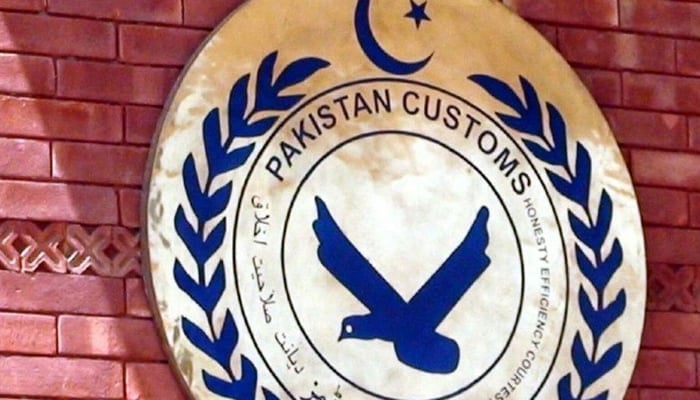Insiders from Customs and IRS have multiple questions over the system’s credibility and fairness

PESHAWAR: In an unprecedented move, as a protest, an officer from the Islamabad Collectorate of Customs (Enforcement) recently refused to accept the reward money under the newly introduced Rating and Reward System. One officer allegedly received a reward of 1.6 million rupees, despite his name being on the list of officers involved in smuggling. Another officer expressed deep regret over the ranking of over 45 officers based on their integrity and work quality, most of whom were completely strangers and unknown to him.
The newly launched Rating and Reward System (RRS), introduced with claims of transparency and freedom from human intervention, has come under serious allegations of manipulation and favoritism. Insiders from Customs and the Inland Revenue Service (IRS) have multiple questions over the system’s credibility and fairness.
Fahad Khan, Assistant Collector, Collectorate of Customs Enforcement, Islamabad, who had been placed in Category “B” and awarded three additional salaries, rejected the categorization, terming it as an implication of inefficiency and a question of integrity — a characterization he “categorically rejects.”
In his letter to the department, Fahad Khan expressed serious concerns over the transparency, objectivity, and credibility of the evaluation process, criticizing the reliance on assessments by seniors and peers who “may have had little to no direct working relationship” with the individuals they rated.
“This decision is not a dismissal of institutional recognition, but rather a principled stance in support of merit-based and credible mechanisms of evaluation,” the officer stated.
Sources say this rare act of declining a financial reward has sparked wider debate within the Customs community about the fairness of the new reward system.
Another troubling aspect is that on April 3, 2025, the Prime Minister’s Inspection Commission submitted a report implicating several Customs officers in facilitating smuggling activities. However, despite ongoing inquiries against some of these officers, certain individuals reportedly received hefty rewards — one officer allegedly received bonuses amounting to Rs1.6 million, despite being under investigation.
According to sources, all officers of Customs and IRS were instructed to evaluate 45 fellow officers under the system, assigning 9 each to categories A, B, C, D, and E. Officers placed in Category A were entitled to rewards equivalent to 24 months’ salary for six months, B to 18 salaries, C to 12, D to 6, and E-category officers were to receive no reward.
Another officer, Suleman Yaqub Khan, Additional Collector Customs, sent a letter and expressed deep regret for rating the integrity and work quality of over forty-five officers, most of whom were complete strangers to him. He acknowledged that by evaluating individuals without any direct knowledge of their performance, he may have unintentionally contributed to unfair outcomes, which was never his intention.
However, a major flaw pointed out was that in many cases, the officer assigned to rate another officer had no personal knowledge or working relationship with them. In such cases, conducting an objective and fair evaluation was impossible. Furthermore, if personal animosities existed between two officers, it allowed the rater to deliberately downgrade the officer by placing them into Category E. This not only resulted in the murder of merit but also opened the system to personal vendettas and favoritism.
The deadline for completing evaluations was March 27, 2025. Yet, despite extensive publicity that the system was “free from human intervention,” the results were delayed by 22 days, raising doubts about this claim.
Moreover, allegations have emerged that several officers’ ratings were later altered by an “anomaly committee,” with some officers being upgraded from low to high categories and others downgraded. To date, the Terms of Reference (TORs) for this anomaly committee have not been disclosed.
Adding further controversy, the FBR amended the IRS and Customs Reward Rules shortly before the launch of the RRS through SRO 604(I)/2025 and SRO 704(I)/2025, respectively, on the 16th and 17th. These sudden amendments fueled suspicions that the rules were tweaked to influence reward distributions post facto.
Serious concerns have also been raised regarding the very criteria of the system itself. Integrity was given a 60% weightage, and work quality 40%, but no clear benchmark, concept paper, or procedure was ever disclosed to define these standards. Insiders claim that merely clicking a button could result in millions of rupees of public money being awarded without any transparent or objective evaluation.
An official of Customs rejected the allegations and said that the process of Rating and Reward System was transparent and completely fair. The system was approved by the competent authorities to encourage the officers. The integrity was given a 60% weightage because more or less everyone knew the officers working in the department. He said every system has flaws in the beginning but the system improved with time.
“The anomaly committee has a limited role in the process, and the allegations are unfounded,” he said. He rejected the allegations of favoritism in upgrading or degrading the ranking of some officials, saying the allegations are baseless and made with malicious intentions.
DATE . May/5/2025


